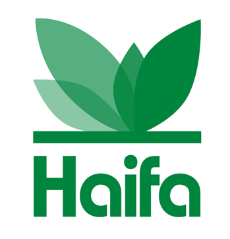Work Visa for Foreign Industrial Workers
11Work Visa for Foreign Industrial Workers
News item for employers of industrial workers: In May 2021, the Ministry of Economy and Industry published an experimental procedure that for the first time permits the employment of skilled foreign workers in Israel’s industry, without requiring employers to meet strict threshold conditions as has been the case until then. The procedure has a quota of only 2000 positions, which are divided into four groups of professions: industrial and manufacturing engineers / mechanical engineers; Practical engineers, mechanics and the like; Clerks and machine operators including welders and locksmiths; Workers in exceptional professions.
This is a very significant change and a really positive update for manufacturers in Israel because so far, employers who were interested in employing “simple” foreign workers, were required to meet very strict minimal requirements, and in many cases the application was denied for various reasons, with it being almost impossible to obtain work permits. Even if a permit was obtained, the employers had to meet the most stringent requirements. First, they were required to pay the employee a wage of no less than twice the average wage in Israel. According to the updated procedure, the employer is obligated to pay the employee a lower wage, which will be no less than 130% of the average Israeli wage (as of 2021, this is 13,699 NIS).
Other strict requirements of employers were a bank deposit guarantee of 40,000 NIS per employee, producing verified documents from abroad, presenting employment contracts and their verification by an Israeli attorney, among others. The difficulty of employing foreign experts severely hampered the ability to meet strict project deadlines and sometimes even thwarted execution of the entire project.
Unlike the older procedure, the current procedure does not require the worker to present an academic certificate, and instead the professional experience and training of the worker are sufficient conditions for obtaining a work permit, subject to the company’s professional need to employ the foreign worker.
The Ministry of Economy publishes deadlines for submitting applications for the issuance of permits, with updates available from our office. Permits can be extended subject to government quotas and in accordance with the Authority’s procedures, for a total cumulative period of up to 63 months. This procedure also allows employers to convert a foreign expert employment permit to an industrial worker work permit, and to transfer workers between employers, subject to the recommendation of the Ministry of Economy and in compliance with the procedure’s conditions. Obtaining an industrial work permit includes three steps: receiving a recommendation from the Ministry of Economy, submitting an application for a permit, and being issued a visa and a work permit with the Population and Immigration Authority.
This is a welcome move by the government, which aligns Israel with many countries in the world that allow permits to be issued to foreign professionals, without meeting draconian threshold conditions. Defining an intermediate level that allows the employment of ‘skilled’ workers, who are not defined as experts, will allow Israel to utilize foreign human capital, at reasonable costs. The only downside is the short period of time given to companies to apply for visas, which requires them to act as quickly as possible.





